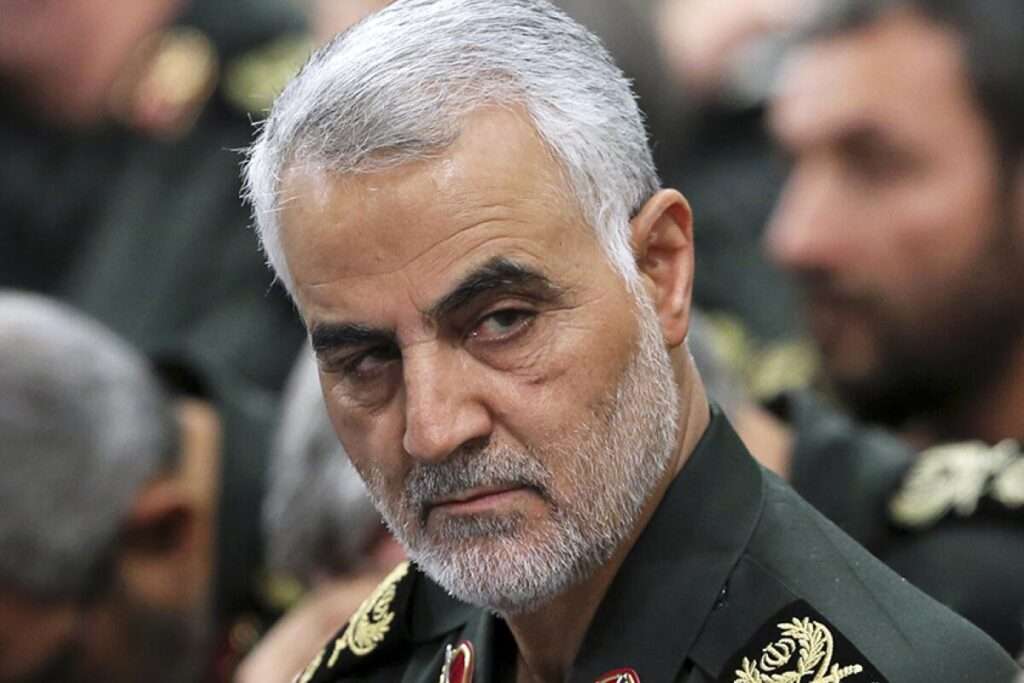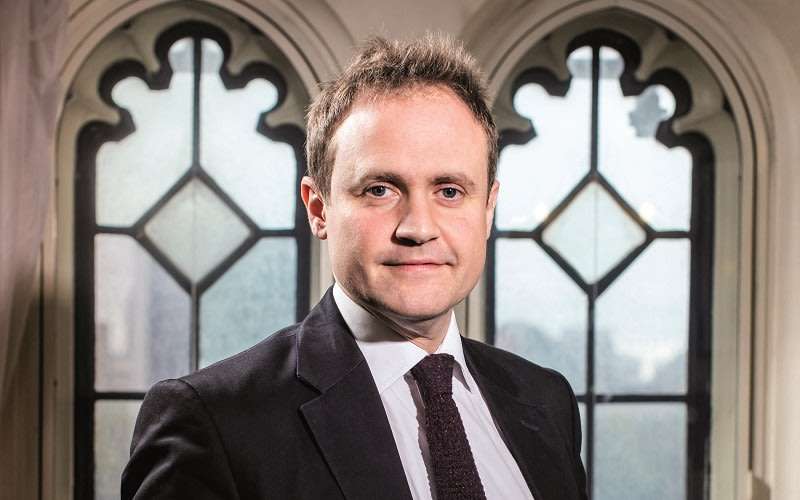Tom Tugendhat, a Conservative MP and former UK Security Minister, has delivered a striking vision for the Middle East, predicting the collapse of Iran’s regime and the potential for Syria to become an economic powerhouse within a decade.
Tugendhat highlighted the 2020 assassination of Iranian commander Qassem Suleimani, sanctioned by then-U.S. President Donald Trump, as a critical turning point in the region’s power dynamics.
“When Qassem Suleimani was killed in January 2020, he held in his head all the relationships, all the deals for everybody around the region. He was replaced, but he wasn’t really, because nobody could replace the personal 20-year relationships that he held.”
Tom Tugendhat
Tugendhat praised Trump’s bold decision, stating, “President Trump, effectively, was the trigger that began the fall of the Assad regime.” He argued that the drone strike not only disrupted Iran’s strategic foothold in Syria and Iraq but also exposed deep fractures within the Iranian Revolutionary Guard Corps (IRGC).
Tugendhat described a brewing crisis within the IRGC as younger members grow increasingly disillusioned with their leadership. “Young members of the IRGC are saying two things,” he noted.
“One, the old guard are corrupt and incompetent. That’s why Hezbollah has been hung out to dry and defeated. That’s why old allies like Assad have fallen.”
Tom Tugendhat
Rumors of Tehran’s willingness to negotiate with the U.S. over a new nuclear deal have added to the internal strife. “They’re hearing rumors that the ayatollah and the government in Tehran want to talk to the Americans to try and find a way out,” Tugendhat said. “And they’re saying there’s absolutely no way that anybody can talk to the killers of Qassem Suleimani.”
This growing divide, Tugendhat suggested, reflects the regime’s fragility. He confidently predicted that Iran’s current government could collapse within a few years, paving the way for significant regional change.
Optimism for Syria’s Economic Future
Tugendhat shifted his focus to Syria, envisioning a nation transformed into a beacon of economic strength and stability. “Frankly, if we get Syria right in 10 years, Syria could be absolutely not just a pole of stability but a fantastic economic powerhouse in the region,” he said.
Despite the optimism, he acknowledged the challenges Syria faces, including territorial divisions and power struggles among Kurdish groups and the radical Sunni Islamist faction Hayat al-Tahrir Sham (HTS).
Tugendhat believes, however, that the fall of Bashar al-Assad marks a turning point for the country and the broader region.
Tugendhat also took aim at the West’s handling of the Middle East, accusing it of lacking a cohesive long-term strategy. He cited the U.S. withdrawal from Afghanistan and Barack Obama’s failure to act on his red lines after Assad’s use of chemical weapons in 2013 as critical missteps.
“At various forks in the road, the West demonstrated weakness, advertised fickleness. Putin is no more constant than we are, but he has the illusion of it. And this is the sort of complete fake strongman theory of life. It’s complete rubbish, of course, but the illusion of it appears real.”
Tom Tugendhat
Tugendhat argued that these perceived weaknesses allowed Russian President Vladimir Putin to position himself as a reliable powerbroker in the region, even though this image is misleading.
A Middle East in Transition
As the fifth anniversary of Suleimani’s death approaches, Iran’s supreme leader, Ayatollah Ali Khamenei, has renewed his opposition to recent developments in Syria. In a speech, he claimed the “youth rises up” to challenge the newly installed Sunni regime.

In Tehran, reformist elements within the government continue to push for direct negotiations with the U.S., a proposal that remains deeply unpopular among IRGC hardliners. These tensions underscore the complex and rapidly changing dynamics within the region.
Tugendhat’s remarks reflect both the opportunities and dangers facing the Middle East. “There are moments like now when the old era is dead, the old illusions are dead,” he said.
“I suspect that the regime in Tehran will be gone in the next few years as well. So I think there’s a real opportunity for freedom to spread and for opportunity to spread.”
Tom Tugendhat
With Syria at a crossroads and Iran facing unprecedented internal pressure, the region is poised for transformation. Tugendhat’s analysis offers a hopeful vision of what could emerge from the current turbulence.
READ ALSO: Apaak Slams Government’s Free SHS Indebtedness, Decries CHASS’s Late Intervention




















